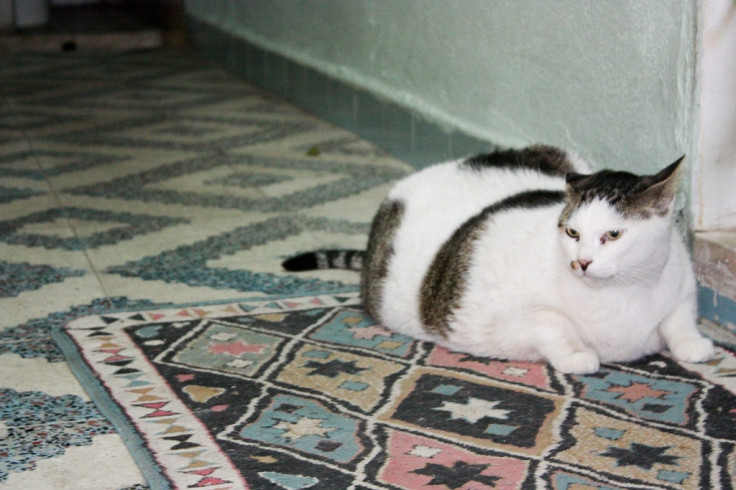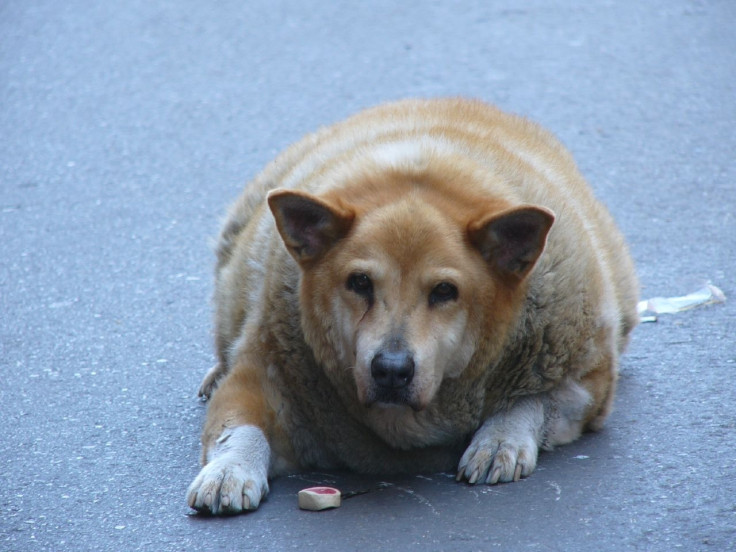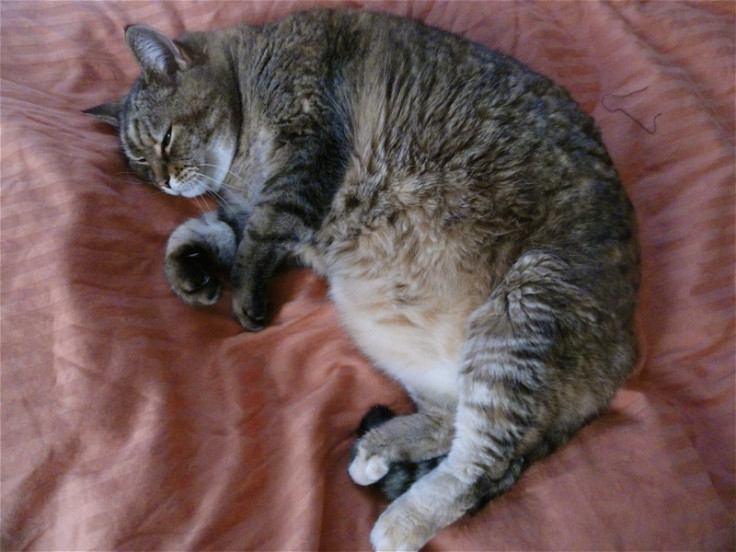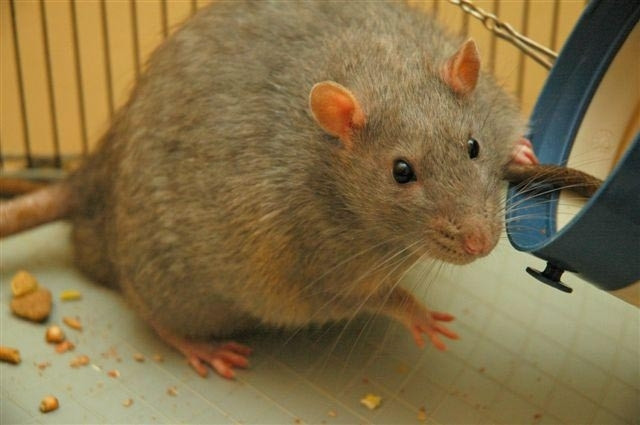There's a pet obesity crisis because we're killing animals with kindness
Recent research suggests that around half of all dogs and cats in the UK are obese.

Today (11 October) is Pet Obesity Awareness Day, so it's as good a time as any to raise an issue that people may not be aware affects animals as much as humans.
According to a study conducted by the British Veterinary Association, over 60% of vets say that obesity is the biggest health and welfare concern regarding pets in the UK.
Furthermore, a 2014 report from the People's Dispensary for Sick Animals (PDSA) suggests that overweight cats, dogs and rabbits are expected to outstrip healthy animals by 2019, while the RSPCA says that around half of all dogs and cats in the UK are obese.
"This can cause serious health and welfare issues for them," James Yates, Chief Veterinary Officer for the RSPCA, told IBTimes UK.
Just as in humans, obesity can increase the risk for a range of life-threatening ailments such as heart disease, cancer and diabetes.
Aside from the higher chance of an early death, obesity can also severely affect a pet's quality of life in other ways. It can lead to arthritis in the joints and breathing problems, which affect mobility, making it even harder for the pet to lose weight.

Furthermore, fatty tissue secretes hormones that negatively affect everything from appetite to water balance and blood pressure.
The main contributing factors to pet obesity are owners not following the correct feeding guidelines or not giving their pet enough exercise. Pets are often given far bigger portions than they need or are fed whenever owners think they are hungry, as opposed to being given meals at set times.
Treats throughout the day – which often contain lots of calories – are another major problem. Just one human biscuit, for example, is equivalent to a whole packet when fed to a small animal.
"Many owners show love for their pet through food, but often this is a case of killing with kindness – most animals would instead enjoy playing or interacting with their owner just as much as getting a treat," said Gudrun Ravetz, president of the British Veterinary Association. "It's also vital that owners understand how to correctly feed their pet and how to recognise a healthy body shape, which is something your local vet is well placed to help advise."

Professor Susan Dawson, president of the British Small Veterinary Association, adds:
"It really is vital that vets and pet owners work together to help animals stay healthy. All companion animals deserve a nutritionally balanced diet. In fact, it is a requirement of the Animal Welfare Acts."
With regards to exercise, according to the PDSA report, millions of dogs across the country either don't receive a long enough walk or don't get walked at all, while many cats and rabbits are kept indoors or in hutches their whole lives, increasing the risk of obesity.
So, what can you do if you think your pet is obese?
"There are simple steps that owners can take – exercise and not overfeeding are key. If people are concerned about their pet's weight their vet may also be able to advise them on a special diet to help them lose weight," said Yates.
Diets that are richer in protein and fibre and low in fat are generally recommended for weight loss, while replacing calorific treats with healthier options and not feeding pets scraps from the table can make a big difference.

Dogs should be walked frequently and for a sufficient length of time for the breed. Cats and rabbits should be allowed some time outdoors if possible, or if not, owners should try and play with them for at least a few minutes every day.
Particular care needs to be taken with aging animals. As older pets become less active, their energy needs drop, so their food intake should be decreased proportionally. Neutered pets should also be watched carefully as they are more susceptible to gaining weight.
© Copyright IBTimes 2025. All rights reserved.





















